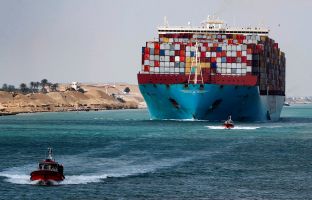Blog Detail
Risks In Commodity Trade Finance & Ways To Manage Them

Importing-exporting goods overseas are associated with a variety of questionable concerns for global traders. From receiving payment on time by the importers to getting the delivery of ordered goods by the exporters, trade finance is full of overseas complications. Commodity trade finance services eliminate all these risks by guaranteeing timely payment & performance of T&C of the contract. But these aren’t the only risks in commodity finance.
The commodity trade industry is prone to various risks that can make a huge difference in how global commodity traders perceive growth in their businesses while importing-exporting goods overseas. It can disrupt the trading operations of a company as well as financial performance. These risks often result in currency fluctuations and affect every business engaged in global commodity trading. Therefore, incorporating a solid risk management system is essential to ensure smooth trade operations.
Here, we have accumulated a few common commodity trading risks and ways to manage them. Take a look:
How To Manage Commodity Trade Finance Risks?
Commodity trade risks are vital to be noticed and addressed for an organization dealing in international trade transactions to further avoid future complications between the associated parties. Every global trader needs to understand both the causes and ways to resolve them.
1. Price Risks/Currency Fluctuations/Price Volatility
By seeing a variety of names, you may have probably understood its significant involvement in commodity trading. The currency fluctuates every other day and variations in commodity prices lead to one of the most common risks in commodity trade finance. Import & export businesses that are engaged in global trade transactions are more prone to face these risks such as producers, manufacturers, and consumers, etc. No one can predict exactly how the price will move in the future.
How To Manage? - Both the parties-to-the contract should agree on the issuance of a Letter of Credit where every important detail related to trade is mentioned. For example, types of goods, currencies to be used, payment date & time, etc. All the parties should abide by the T&C of the contract. It will help eliminate the risks of price movements and trade their products at an acceptable price.
2. Quantity Risks
Mainly producers and manufacturers are those trading parties who are prone to face these risks. It says that producers should be sure about the complete & timely selling of the quantity of the products they are planning to produce by expecting high demand. In simple words, they should have a crystal-clear idea that the goods which they are producing will be fully utilized till the date. Otherwise, they can experience small profit or even loss if they have left with an ample amount of products for which there is no demand.
How To Manage? - One of the most effective ideas to prevent quantity risks in commodity trading is by selling upcoming invoices to the banks or FIs. It is known as Factoring.
3. Quality Risks
Different from quantity risks, importers in global trade often face these risks. When they buy/order goods in bulk from exporters, they aren’t sure of receiving the goods of the same quality they have ordered. For example, he/she can receive damaged or faulty goods from the suppliers.
How To Manage? - Both the parties should enter into a valid contract where every important thing is well-written. They can get a Bank Guarantee issued as an essential trade finance product. Or a Sight Letter of credit can also be issued that will inform that the buyer cannot deny the payment or reject the ordered goods. However, they can complain about the wrong delivery of the products.
4. Counterparty Risks
While entering into a trade deal with global traders, there is always a risk of payment default by the other party. Since both the parties aren’t aware of each other’s financial capabilities, there is a threat of the other party not meeting his/her financial agreements. These are counterparty risks being experienced by both small & big traders.
How To Manage? - The best way to manage this commodity trading risk is to get a Standby letter of credit issued by a trusted bank or financial institution. Here, the issuing bank guarantees timely payment to the exporter only if the importer defaults and the exporter submits the proof of such default to the confirming bank. This way, both parties are secured.
5. Credit Risks
On one hand, where counterparty risks are about the failure of payment by the importers, credit risks deal with the importer's failure of meeting the T&C of the financial contract. In simple words, when buyers fail to abide by the rules & guidelines mentioned in a trade deal, it is a credit risk.
How To Manage? - A suitable trade finance instrument can be issued in the interest of both the parties ie. importers & exporters. It can be an LC, SBLC or BG, etc.
6. Liquidity Risks
When a commodity faces a lack of marketability ie. it is not capable of being sold or bought quickly enough to avoid loss is known as Liquidity Risks. Though the commodity market is open from 9 a.m. to 11.30 p.m, there are times when a commodity trading business is not fulfilling its short-term obligations. There are two types of liquidity risks -
1. Funding/Cash Flow Liquidity Risks - It refers to the risks where a trading business has outstanding payments.
2. Market / Asset Liquidity Risks - On the other hand, market risks are the inability of a commodity to be sold. This can be due to uninterested parties buying the commodity being offered by the commodity trading business.
How To Manage? - While investing in commodities, or any other asset class, it is advised to choose liquid instruments so that they could be bought or sold without any complications at lower trading costs.
Recommended Read - How Can NFTs Be A Game-changer In Revolutionizing Trade Finance?
7. Operational Risks
Commodity trading is enclosed by a wide range of operational risks including systematic failure, accounting, or data entry errors. They often occur due to disruptions in a company's internal processes or system. Apart from that, an insufficient trade management system can also be the reason behind these operational risks. These risks are associated with how an organization works and manages day-to-day business tasks.
Poor management of these types of operational risks is one of the primary reasons that lead commodity trading businesses toward major financial crises internationally. These risks demonstrate an organization’s uncertainties while managing its routine activities.
How To Manage? - Firstly, an effective ORM program should be set up at every level of an organization. Plus, employees across every level of the company should be trained to incorporate risk-based thinking into their routine tasks. Apart from that, a regular risk assessment also helps keep the company’s risk profile up-to-date. All operational risks must be quantified in their severity & mitigation costs.
Recommended Read - How Digital Trade Finance Is Improving Trade Transactions For Importers & Exporters?
8. Compliance Risks
Following rules & guidelines are important in every organization and the same goes with the commodity trading business globally. There are certain rules & regulations that a commodity trading company is required to follow while conducting activities. Failure to do so can result in huge fines or losses for the commodity trading business. Such failures are known as Compliance Risks. For example, a failure to adhere to legal or regulatory sanctions ie. applicable laws may result in reputational damages.
How To Manage? - A commodity trading business is required to establish a dedicated approach to reduce the chances of these law violations. Strict commodity risk management systems can help ensure that all of your trade activities comply.
9. IT Risks
As the name appears, these risks are associated with hardware or software failures as well as any type of malicious attack that can disrupt the functioning of an organization. It can also pose the threat of losing confidential data or significant information. IT risks demonstrating a huge loop in an organization’s security & performance measures. From losing valuable business data to reducing the productivity of operations, it can disrupt your business.
How To Manage? - A powerful risk management system must be incorporated into a business that is capable of protecting your organizational data from commodity IT risks.
10. Geopolitical Risks
While trading internationally, it often happens when some natural resources can only be found in certain parts of the world. In these situations, if you are willing to buy those natural resources, a few things must be considered to avoid the risk with the government of a country. For example, tax structures, environmental factors, license agreements, and local employers. All these factors can increase the cost and in extreme cases, vulnerable geopolitical risks of a country can cause greater risks or may result in riots. Such risks are difficult to avoid.
How To Manage? - It is important to maintain good relations with the particular government of a country to avoid these risks.
11. Speculative Risk
Investing in commodity trade finance is always associated with one crucial risk which is none other than Speculative Risks. Nothing can be predicted about a commodity whether it will make a profit or not. However, the level of Speculative Risk is different per commodity. For example, commodities with high volatility have higher speculative risks as the prices can change dramatically which can result in huge profit or loss.
How To Manage? - It is important to have a clear understanding of the factors that can affect the price of the commodity. An assessment can be done to determine whether an investment is profitable or not. This will help understand how to operate in the market and reduce the risks.
Wrapping Up!!
Commodity trading is prone to various risks and controlling or reducing them is a key to witnessing safe, & profitable international trade transactions. When both the importers-exporters get peace of mind while executing a trade deal, the chances of expanding their businesses increase. It helps boost global trade.
Axios Credit Bank Ltd is a popular & trusted financial institution that can help & advise you upon choosing the right financial solution for your business.







